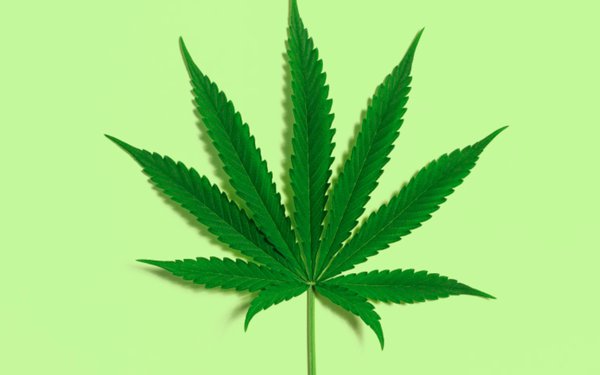Commentary
A Chilled-Out Year? CBD, THC Dominate Most-Read Columns
- by Steve Ellwanger , December 30, 2021

Of the top 10 most-read CPG FYI columns of 2021, six were about the ever-changing dynamics of the marketplaces for CBD, THC and tobacco.
In some ways, though, things don’t really change much—if at all. It’s actually more of a déjà vu all over again situation, particularly as regarding government regulations or lack thereof for CBD and THC.
Considering that Marketing Daily publishes 52 CPG FYI columns each year, there’s clearly lots of interest in substances you can grow in your yard (OK growing tobacco in urban locales would be weird) and then smoke, vape or ingest for a change of mood.
Number 1 in overall readership was a March 5 treatise on a lung ailment’s impact on the vape market. Tobacco vaping already had a black eye because of the number of young people who had become addicted to the easily concealable method of inhaling nicotine. After mountains of apocalyptic headlines and news reports, the condition that would be labeled EVALI was eventually linked to substances like vitamin E acetate that had been added to black-market, THC vape products—not tobacco.
advertisement
advertisement
In the #2 spot was a column that opened with Apple’s decision to allow iPhone apps to facilitate cannabis transactions and the resulting impact on brands and legal dispensaries. The founders of 2019 startup Surfside—a consumer-targeting platform—shared their views on the complexities of advertising cannabis and what the future might hold for platforms like streaming television.
Column #3 chronicled the rise of cigarette sales prompted in part by at-home quarantining, job layoffs and stimulus payments that boosted disposable income—particularly among lower-income consumers who are more disposed to smoking. Also featured was the Ohio debut of Taat hemp cigarettes, which were positioned as helping people kick nicotine as opposed to ingesting it in different ways.
The federal government’s long-running “Groundhog Day” approach to keeping cannabis on the list of controlled substances—as in, no “currently accepted medical use," while politicians of all stripes talk about the myriad ways it might become legal—occupied the #4 spot. The only guidance that CPG FYI can provide is that if legalization doesn’t happen before the 2022 midterm elections in November, the reappearance of Haley’s Comet is a more likely occurrence.
At #5 in the rankings was a recent column about the nexus of CPG brands and restaurants via a partnership between sauce marketer Truff and fast-casual chain Noodles & Company. It seemed to make sense for both brands—but after a limited test at some 450 Noodles & Company locations, the partnership ended.
The now-ubiquitous term “health and wellness” was front and center in the sixth-ranked column. Among the major deals of 2021 was Nestlé SA’s acquisition of The Bountiful Company—whose brands include Nature’s Bounty, Solgar, Osteo Bi-Flex and Puritan’s Pride. It dovetailed with Unilever North America’s purchase of Onnit for its Alpha Brain, Shroom Tech and Stron Bone products.
Just one carbonated beverage made the Top 10 this year: Pepsi Wild Cherry’s collaboration with Fox on the 30-minute trivia show “Cherries Wild,” in 7th place. As of Dec. 29, the mashup of Pepsi advertising, product placement and viewer participation had not been canceled or renewed.
As if the TCH space could not have gotten more complicated, along came the Delta-8 variant—fittingly the subject of 2021’s column #8. Delta-8 seemed to have slipped under the radar when Congress passed the 2018 Agricultural Improvement Act, which only addressed the level of Delta-9 THC in hemp. Some states have cracked down on Delta-8 while the hemp industry defends it.
At #9 was an interview with Utz Brands’ marketing executive Bill Blubaugh about the 100-year-old company’s rise to become the nation’s #3 salty snack manufacturer. It was the only CPG FYI column in the top 10 dealing with snacking.
Rounding out the field was a recap of 2020 trends in CBD-infused products. As of this writing, the U.S. Food and Drug Administration seems to be nowhere close to issuing guidelines for CBD in dietary supplements. Meanwhile, states like California have issued their own regulations—but many major retailers are staying on the CBD sidelines in the absence of federal guidance.


